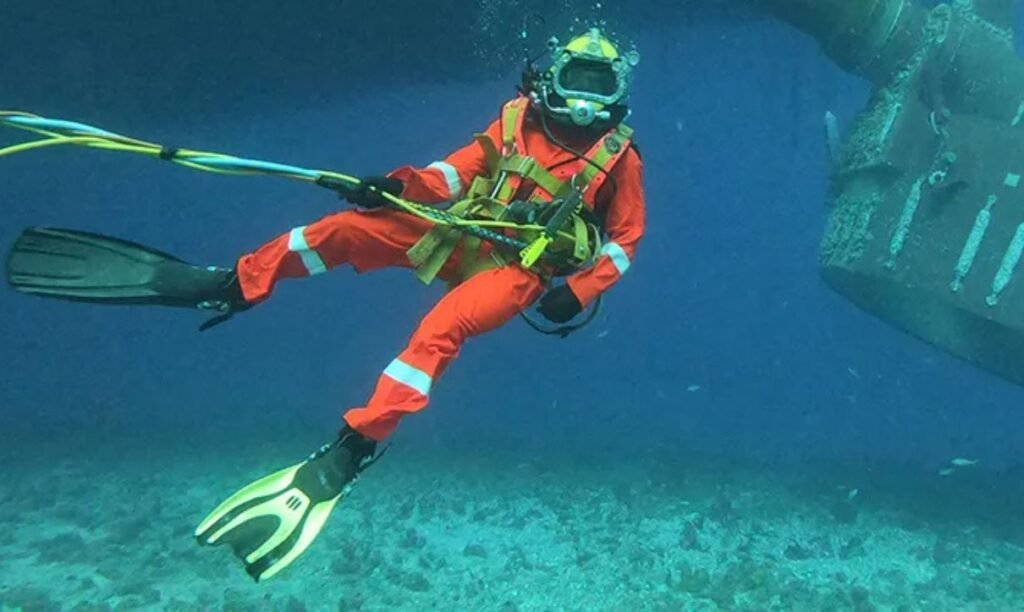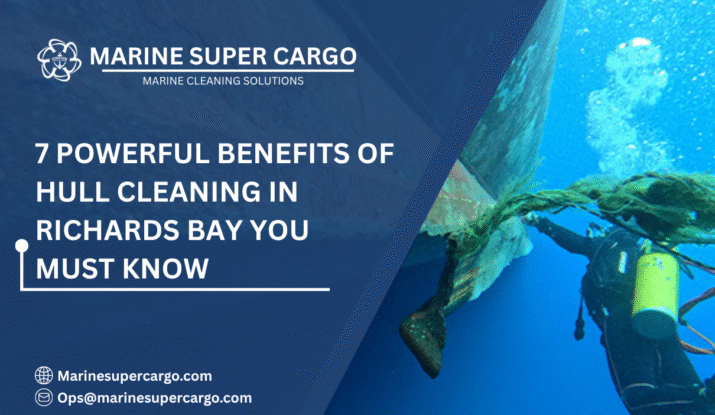Hull Cleaning in Richards Bay: Essential Guide for Ship Owners and Operators
Hull cleaning in Richards Bay is a critical task for maintaining vessel performance, reducing fuel consumption, and ensuring compliance with environmental regulations. Regular hull cleaning in Richards Bay helps prevent biofouling, which can slow ships, increase operational costs, and lead to regulatory penalties.
Shipowners and operators—whether managing cargo ships, tankers, or leisure vessels—benefit from understanding the most effective hull cleaning methods, including diver scrubbing, high-pressure water jets, and robotic systems. Professional hull cleaning in Richards Bay not only improves efficiency but also protects antifouling coatings and the marine environment.
Staying informed about hull cleaning practices and emerging technologies ensures smoother operations, cost savings, and long-term fleet sustainability.
Why Hull Cleaning in Richards Bay Matters
Think of your ship’s hull like a car’s tires on a muddy road. Over time, marine growth such as barnacles and algae creates drag, just as mud would on tires. This drag slows your vessel, burns more fuel, and wears down the hull’s protective coatings. Hull cleaning in Richards Bay removes this unwanted buildup, ensuring your ship moves smoothly and efficiently through the water. Keeping a clean hull also helps comply with local port rules and international maritime standards.
The Environmental Impact of Hull Cleaning
Hull cleaning plays a crucial role in protecting marine ecosystems by preventing the spread of invasive species attached to ships. The International Maritime Organization (IMO) emphasizes biofouling management to minimize environmental damage. In Richards Bay, hull cleaning must follow permits issued by the Harbour Master to ensure proper waste containment and disposal according to MARPOL conventions. Adhering to these guidelines not only protects oceans but also safeguards your company’s reputation.

Common Techniques Used for Hull Cleaning in Richards Bay
There are several methods for hull cleaning in Richards Bay, including diver-assisted brushing, remotely operated vehicles (ROVs), and robotic cleaning systems. Divers manually scrub hulls with brushes or specialized tools, ideal for delicate coatings. ROVs and autonomous cleaning robots offer advanced solutions by operating faster and sometimes while the ship is docked or even in transit. Each method has pros and cons related to cost, time, and hull type, so consultation with local experts is recommended.
Hull Cleaning Permits and Regulations in Richards Bay
Hull cleaning inside Richards Bay port limits requires a valid permit granted by the Transnet National Ports Authority. This regulatory framework ensures safety, security, and environmental responsibility. Applying for a permit involves submitting documentation and agreeing to specific conditions set by the Harbour Master. Compliance helps avoid fines and operational disruptions, making it essential for shipowners and operators to stay informed of all regulatory updates.
Cost-Saving Benefits of Regular Hull Cleaning in Richards Bay
A clean hull directly translates into lower fuel consumption, often by up to 15-20%, which can save thousands of dollars for large vessels. Regular cleaning prevents heavy fouling accumulation, which is more expensive and time-consuming to remove. Additionally, it extends the life of hull coatings and reduces corrosion risks. By scheduling periodic hull cleaning in Richards Bay, you protect your investment while optimizing operational budgets.
Innovations and Future Trends in Hull Cleaning in Richards Bay
Technology is transforming hull cleaning with increased use of automation and eco-friendly solutions. Robotics and remote sensing allow for precise cleaning without harming hull coatings. Industry standards such as IMO biofouling guidelines push for greener practices, while new biodegradable cleaning agents reduce chemical pollution. Predictive maintenance driven by digital data helps operators plan better cleaning schedules, enhancing vessel readiness and port turnaround times.
Marine Supercargo Expands Services: Drug & Alcohol Testing for Safer Seas
Marine Supercargo, known globally for their marine cleaning platform, now offers professional Drug & Alcohol Testing services. This new service supports ship owners, operators, and managers by helping maintain crew safety and compliance with international maritime regulations.
Testing covers pre-employment, random, post-incident, and routine protocols, ensuring operational efficiency and protecting vessel integrity. This proactive approach to safety complements hull cleaning efforts by keeping seafarers fit for duty.
How Hull Cleaning Enhances Vessel Performance
Hull cleaning reduces friction between the water and the vessel, boosting speed and maneuverability. Think of it like a swimmer shaving before a race to cut drag. Cleaning also improves the accuracy of sonar and depth-finding instruments by reducing biofouling interference. Regular maintenance avoids costly delays caused by inspections or repairs required due to hull damage from prolonged fouling.

Choosing the Right Hull Cleaning Service in Richards Bay
Selecting a reliable and experienced hull cleaning provider is key to safe and effective cleaning. Look for services with 24/7 availability, use of environmentally compliant methods, and transparent reporting backed by ROV footage or diver assessments. Established local companies familiar with Richards Bay regulations often offer better scheduling flexibility and rapid response times, essential for minimizing port stays.
Conclusion
Hull cleaning in Mossel Bay requires prior approval from the port authority before any underwater work begins. Ship operators must apply for permits in advance and partner with licensed, IMCA-compliant service providers to meet IMO and MARPOL environmental regulations.
Performing hull cleaning without authorization can result in heavy fines, operational delays, and reputational risks. Partnering with CleanShip.co and following proper procedures ensures compliance, environmental protection, and smooth port operations while maintaining the vessel’s performance and reliability throughout its service schedule.
FAQs:
Q1. Why is drug & alcohol testing essential in the maritime industry?
To ensure crew members operate vessels safely and comply with international laws, reducing accidents and liability risks.
Q2. How often should hull cleaning be performed?
Frequency depends on vessel type and operating conditions, but generally every 3 to 6 months to prevent heavy fouling build-up.
Q3. What types of drug tests are conducted on board vessels?
Tests include saliva swabs, urine, hair sampling, and breath alcohol tests, covering common illegal and prescription drugs.
Q4. Can hull cleaning affect the vessel’s certification?
Yes, regular cleaning and maintenance help maintain class society and port state control certifications by preventing hull deterioration.
Q5. Why is in-vessel drug & alcohol testing recommended?
Testing onboard ensures confidentiality, quick results, and compliance with company policies and maritime regulations.


